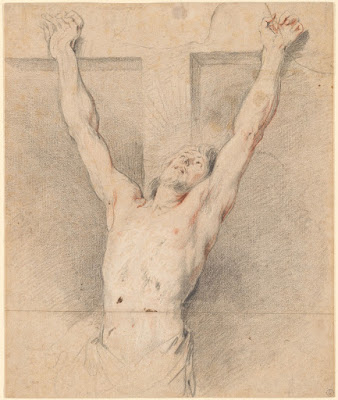 |
| Victor Vasarely Bach Suite 1973 screenprint Art Gallery of Greater Victoria, British Columbia |
 |
| Victor Vasarely Reytey-va ca. 1967-69 tempera on paper, mounted on panel Art Gallery of New South Wales, Sydney |
 |
| Victor Vasarely Siam III ca. 1964 screenprint Art Gallery of New South Wales, Sydney |
 |
| Victor Vasarely Tridim B Y 1968-69 acrylic on panel Musée National des Beaux-Arts du Québec |
 |
| Anthony van Dyck Half-Length Study for the Crucifixion ca. 1630 drawing Morgan Library, New York |
 |
| Anthony van Dyck Portrait of artist Adam van Noort ca. 1630-40 etching Staatliche Graphische Sammlung, Munich |
 |
| Anthony van Dyck Portrait of Cardinal Domenico Rivarola ca. 1623-24 oil on canvas Portland Art Museum, Oregon |
 |
| Anthony van Dyck Outpouring of the Holy Spirit on Pentecost ca. 1618-20 oil on canvas Bildgalerie von Sanssouci, Potsdam |
 |
| Vincent van Gogh Red Cabbages and Garlic 1887 oil on canvas Van Gogh Museum, Amsterdam |
 |
| Vincent van Gogh Edge of Wheat Field 1887 oil on canvas Denver Art Museum |
 |
| Vincent van Gogh Ravine 1889 oil on canvas Museum of Fine Arts, Boston |
 |
| Vincent van Gogh The Rocks 1888 oil on canvas Museum of Fine Arts, Houston |
 |
| Vicki Varvaressos Family Group 1986 enamel on board Heide Museum of Modern Art, Bulleen, Australia |
 |
| Vicki Varvaressos You Too Can Be Like This 1976 oil on canvas National Gallery of Victoria, Melbourne |
 |
| Vicki Varvaressos Woman with Statue 1994 synthetic polymer paint on canvas Heide Museum of Modern Art, Bulleen, Australia |
 |
| Vicki Varvaressos Thea and Maggie taking Tea 1981 synthetic polymer paint on canvas Art Gallery of New South Wales, Sydney |
from Part Five of The Age of Anxiety
Alcohol, lust, fatigue, and the longing to be good, had by now induced in them all a euphoric state in which it seemed as if it were only some trifling and easily rectifiable error, improper diet, inadequate schooling, or an outmoded moral code which was keeping mankind from the millennial Earthly Paradise. Just a little more effort, perhaps merely the discovery of the right terms in which to describe it, and surely, absolute pleasure must immediately descend upon the astonished armies of the world and abolish for ever all their hate and suffering. So, such effort as at that moment they could, they made. Rosetta cried:
Let brazen bands abrupt their din and
Song grow civil, for the siege is raised.
The mad gym-mistress, made to resign,
Can pinch no more.
Emble cried:
Deprived of their files,
The vice-squads cavort in the mountains,
The Visa-Division vouch for all.
Then Rosetta:
The shops which displayed shining weapons
And crime-stories carry delicate
Pastoral poems and porcelain groups.
Then Emble:
Nor money, magic, nor martial law,
Hardness of heart nor hocus-pocus
Are needed now on the novel earth.
Rosetta:
Nor terrors, tides, contagion longer
Lustrate her stables: their strictures yield
To play and peace.
Emble:
Where pampered opulent
Grudges governed, the Graces shall dance
In excellent order with hands linked.
Rosetta:
Where, cold and cruel, critical faces
Watched from windows, shall wanton putti
Loose floods of flowers.
Emble:
Where frontier sentries
Stood so glumly on guard, young girls shall pass
Trespassing in extravagant clothes.
Rosetta:
Where plains winced as punishing engines
Raised woeful welts, tall windmills shall pat
The flexible air and fan good cows.
Emble:
Where hunted hundreds helplessly drowned,
Rose-cheeked riders shall rein their horses
To smile at swans.
– W.H. Auden (1944-46)